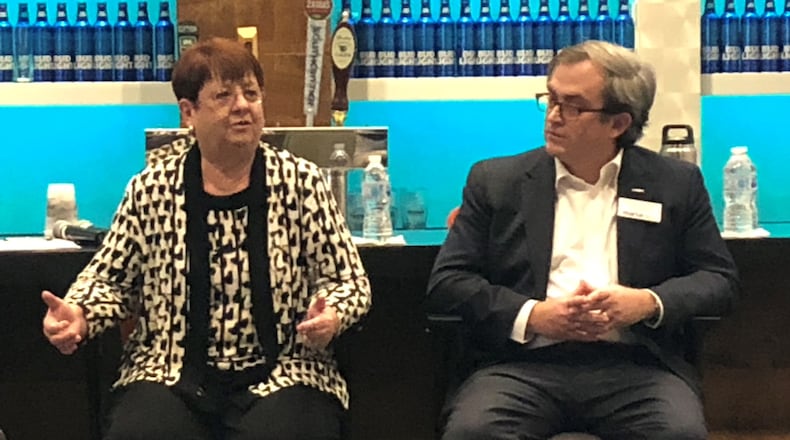A new poll has given supporters of next month's Gwinnett County MARTA referendum something to fret about, and that was evident at a public forum Sunday afternoon.
The Rosetta Stone Communications poll conducted for Channel 2 Action News found 48 percent of regular Gwinnett voters opposed the county’s tentative contract with MARTA, while about 41.5 percent support it.
Other polls have shown most Gwinnett residents support transit expansion. But the latest poll of regular voters shows the referendum's success may hinge on who turns out to vote. Younger and African American voters support joining MARTA, while older white voters oppose it.
The poll seemed to be on the minds of more than 100 people who attended an educational forum on the MARTA referendum at Eagle Rock Distributing Co. in Norcross Sunday. County Commission Chairwoman Charlotte Nash and MARTA Board member Robbie Ashe addressed the crowd and answered questions for more than an hour.
Nash laid out some of the details of Gwinnett's transit plan, which would require voters to approve a 1-cent sales tax increase to pay for a MARTA rail extension, new bus rapid transit lines and other improvements. It's a big part of Gwinnett's transportation plan to address the arrival of another 500,000 residents in coming decades.
But Snellville Mayor Pro Tem Dave Emanuel asked a key question at the end of the forum: What happens if the MARTA referendum fails?
Nash doesn’t think Gwinnett can afford to entertain that notion. She said there’s “no viable alternative,:
“I don’t even want to say it out loud,” she said. “The quicker we pass the question, the quicker we can get started on what has to be done.
“If it doesn’t happen March 19, we’ve got to come back and find another way to approach it,” Nash said.
Does that mean Nash would put transit expansion back on the ballot later if it fails in March? In an interview with The Atlanta Journal-Constitution, Nash said she has no secret contingency plan. But she said transit must play a key role in addressing the county’s transportation needs.
“It’s going to have to happen one way or another,” Nash said, “whether it’s now or five years from now.”
Ashe also seemed to contemplate a failure in his remarks.
“This referendum is absolutely winnable,” he said. “Ten years ago, I’m not sure it would have been true. Twenty years ago, I’m sure it wasn’t true.
“Today, this referendum is very winnable,” Ashe said. “But it’s not yet won.”
About the Author
The Latest
Featured


